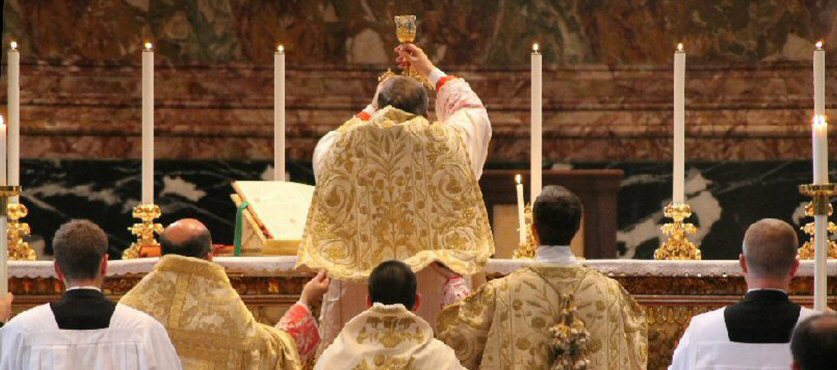THEOLOGICAL NOTES
The note below has been translated from an italian book by Don Alfredo M. Morselli and corrected from translation errors by english language experts of theology.
| THEOLOGICAL NOTE | CENSORING | REQUIRED ASSENT | SIN | EXPLICATION | EXAMPLES |
|---|---|---|---|---|---|
| Dogma of faith (of definite faith; of Catholic faith; of divine or Catholic faith [D. 1792]) Revealed doctrine or judgement, by public revelation (Scripture or Tradition), in sphere of faith or moral, proposed by Church as revealed. |
Anathema sit. Heresy against divine faith |
Absolute by light of divine faith | Mortal sin, directly against faith. In addition, there is canonical penalty. |
Dogma, defined in a solemn manner by Pope or by an Ecumencal Council. of definite faith Dogma, proposed by ordinary teaching in official documents and Symbols. |
Immaculate Conceptio of B. V. M. Sacrifice of Mass. Jurisdiction of Pope and his infallibility, as it's defined in Vatican I. Absence of errors in inspired text (D. 1952). Athanasian Symbol. |
| Of just catholic faith. (Others say: of ecclesiastical faith) | Anathema sit Heresy against ecclesiastical faith |
Absolute by light of ecclesiastical faith. | Mortal sin, directly against faith. In addition, there is canonical penalty. |
Not revealed matter in explicit manner, but definite ex cathedra so that anyone must retain it by faith. | Communion in only one species (D. 626). Unction by Chrisma (D. 872). Existence of minor orders (D. 962) |
| Of divine faith: reveald matter, but not proposed by an ecclesiastical special act | Error in faith | Absolute by light of divine faith | Mortal sin, directly against faith. | The only difference in comparison with dogma is because it's not propounded by Church | Jesus, since the beginning of His life, said he was the Messiah. Jesus was worthy of the glory of His body. |
| Close-set to faith | Close-set to error. | Theological by light of faith. | Mortal sin, indirectly against faith. | Assumed as revealed by general consensus. | Habitual grace in Christ and His beatific vision. Monogenism against poligenism. |
| Theologically certain. Its negation implies negation of some dogma or of some verities of divine faith. | Error in theology | Theological, by light of ecclesiastical teaching. | Mortal sin, indirectly against faith. | Deduced from a revealed sentence and from another one, certain by other source. Dogmatic facts. |
Possibility of demonstration of existence of God. Legitimacy of Tridentine Council. |
| Catholic doctrine | At least audacious sentence. | Theological, by light of ecclesiastical teaching. | Mortal sin, indirectly against faith. | Not yet proposed as word of God, but it's taught in a and authentic manner, for example in encyclicals | Inspired authors are true authors but secondary authors. |
| Certain: comumon and certain - morally certain. It's sometimes hardly detectable from Theologically certain.. |
Audacious sentence | Theological, by light of reason. | It can be mortal sin, by temerity. | It's common to all schools. It's certain, but it's less immediately deduced from revealed verity |
Integrity is a not due gift Sacraments are true causes. God can create a spirtual creature, without ordainig him to beatific vision. |
| Sure. The teaching of its contrary is not allowed. | Audacious sentence | External and internal | Mortal sin, by disobedience. | It does not repel absolutely that there is something false. | Matter of doctrinal decrees of Roman Congregations. |
| More common-Very common (whose value is less than common ). | None or Captious, does not sounds right that..., scandalous, offending of pious ear | Free | None | It does not repel absolutely that there is something false. | Remission of sins by infusion of grace itself. |
| More probable- Probable extrinsic probability (by authority) intrinsic probability (by the matter itself) |
None or Captious, does not sounds right that..., scandalous, offending of pious ear | Free | None | It does not repel absolutely that there is something false. | Various theories as molinism or banetianism. |
In Jesu et Maria
Don Alfredo M. Morselli
